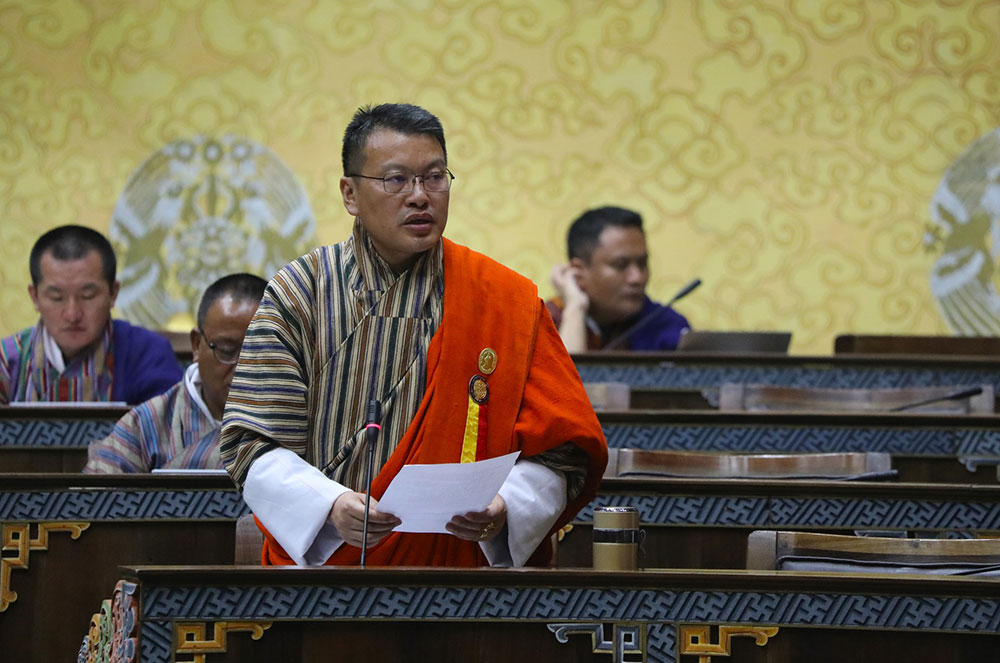Thinley Namgay
Bhutan has been granted access to 15 entry and exit points in Bangladesh for the transit of goods, following the signing of an “agreement on the movement of traffic-in-transit” between the two countries in March of this year.
Bhutan has designated eight entry and exit points, including Samdrupjongkhar, Gelephu, Phuentsholing, Samtse, Nganglam, Gomtu, Paro International Airport, and Gelephu Airport.
The agreement was presented in the National Assembly yesterday, and further deliberations will take place on June 12.
Covering 20 articles, the agreement addresses various aspects such as port facilities, infrastructure provision, services at the frontier posts, transit route designations, means of transport options, customs duties and fees, and charges, among others.
Bhutan is among the few countries that have bilateral transit agreements with Bangladesh, reflecting the countries’ long-standing friendship.
Minister of Industry, Commerce, and Employment, Karma Dorji, highlighted that Bangladesh is Bhutan’s second-largest trading partner, and the agreement will provide alternative transit routes for Bhutan’s trade with third countries.
He further stated that the agreement will expand trade relations with Bangladesh and complement the Preferential Trade Agreement signed in July of last year.
Concerns were raised during the parliamentary session. Ugyen Wangdi, the MP from Drametse-Ngatshang, emphasised the importance of Bhutan exporting to Bangladesh in USD, which is crucial for the economy. He also highlighted the need to address challenges faced by traders along the way.
Passang Dorji (PhD), the MP from Bartsham-Shongphu questioned the implementation of the agreement, noting that similar agreements had been made in the past without full implementation.
Given that Bhutan does not share a geographical border with Bangladesh, officials stated that the success of transit trade through Bangladesh has to rely on the support received from the government of India and its state governments while passing through their territory.
According to officials, Bhutanese traders have the potential to expand their business into Bangladesh. However, they may not experience significant benefits in the early years due to the existence of competitive and better-organised transporters within India and Bangladesh.
Until now, a significant portion of Bhutan’s third-country trade has been routed through the port of Kolkata, India. Officials acknowledged that it would take time for the private sector in Bhutan to adapt to the alternate route through Bangladesh.
Background
Bhutan and Bangladesh first signed a transit agreement on September 8, 1980, in Thimphu, with a validity of 10 years. The agreement was subsequently extended for another 10 years until September 7, 2000.
After the agreement expired in 2000, Bhutan proposed its renewal. However, progress was limited despite numerous bilateral discussions.
Positive developments occurred only last year during the third Joint Working Group (JWG) meeting held in Bangladesh. Bhutan proposed renaming the agreement as the “Agreement on Movement of Traffic-in-Transit” instead of the “Agreement on Movement of Goods in Transit.”
The JWG agreed to discuss this proposal at the Commerce Secretary Level Meeting (CSLM) for endorsement. The 8th CSLM, held in Dhaka in September 2022, saw the Agreement, and its protocol received endorsement.
An agreement was signed on March 22 of this year by Karma Dorji, Minister of Industry, Commerce, and Employment, and Tipu Munshi, Minister of Commerce of Bangladesh.


